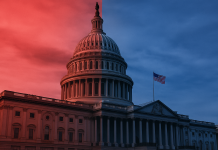
Public access to long-withheld federal records on Jeffrey Epstein is suddenly within reach after President Donald Trump signed the Epstein Files Transparency Act, ending months of resistance from the White House. The surprise approval came only hours after the Senate sent the measure to Trump’s desk, following a near-unanimous push in Congress driven by bipartisan frustration and growing pressure from survivors.
Trump immediately framed the move as an attack on Democrats, launching into an extended social-media broadside that attempted to redirect questions about his own ties to Epstein while accusing political rivals of deeper involvement. He claimed that once the files are released, “truth about these Democrats” would emerge, portraying the legislation as part of his wider fight against what he calls “hoaxes” aimed at weakening his administration.
The law directs the Department of Justice to publish within 30 days all unclassified investigative records related to Epstein, Ghislaine Maxwell, and individuals referenced in connection with their crimes. However, the measure contains numerous carveouts that permit redactions to shield victims’ identities, medical details, or items that could interfere with ongoing investigations. Attorney General Pam Bondi has affirmed that the department will follow these provisions while preparing the release.
Survivors of Epstein’s abuse have voiced cautious optimism. Many have spent years demanding transparency from federal agencies and expressed relief that public access may finally shed light on how Epstein operated for decades while cultivating ties across politics, academia, finance, and media. “This is not political for us,” survivor Dani Bensky said. “This is a survivor issue.”
Yet what the public will actually see remains uncertain. The DOJ can withhold materials tied to active probes, and Trump has now ordered Bondi and federal investigators to pursue inquiries into a roster of Democrats and financial institutions mentioned in Epstein’s correspondence. Critics fear these new investigations could be used to justify broad delays or redactions, complicating the very transparency the bill promises.
Congressional irritation with the administration has grown in recent weeks, especially after the House Oversight Committee released more than 20,000 emails from Epstein’s estate. Those documents revealed Epstein’s lingering interest in Trump well into the 2010s, including a 2011 message expressing gratitude that Trump had stayed quiet about him, even though the two had socialized for years before Epstein’s first conviction. They also showed Epstein privately describing Trump in harsh terms and discussing him frequently with high-profile associates.
The newly released estate files also shed light on Epstein’s communications with influential Democrats such as Larry Summers and Kathryn Ruemmler, prompting renewed scrutiny across party lines. Harvard University has launched a review into mentions of its community in the records, and Summers has stepped away from teaching amid questions about his interactions with Epstein.
With the countdown now underway, the country faces an unusual moment: a deeply charged political fight wrapped around a long-delayed search for accountability. Survivors hope the coming disclosures will expose enablers across all factions. Lawmakers, journalists, and the public will soon learn how much of Epstein’s network federal authorities are prepared to reveal — and how much will remain hidden behind blacked-out pages.
This image is the property of The New Dispatch LLC and is not licenseable for external use without explicit written permission.







